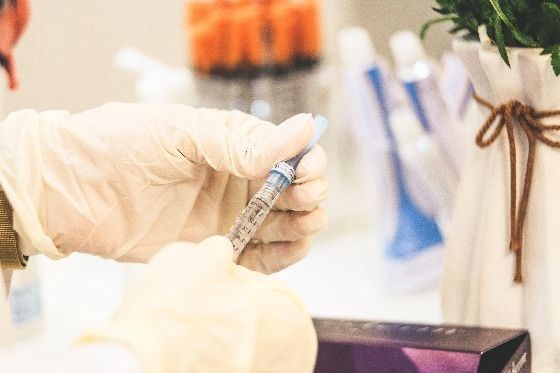“Could you patent the sun?”
It’s a great question and one with particular resonance at this time when the world awaits the roll-out of a COVID-19 vaccine.
In the past few weeks, four different pharmaceutical companies have released promising results. And while these announcements have been made via press conferences, as opposed to peer-reviewed journals as is usually the case, there is a sense we’re seeing a light at the end of the tunnel.
Of course, how long that tunnel is may depend on what country you live in.
Early on, Canada invested in a number of companies that were working on vaccines, which means it will have early access to the shot when it’s rolled out. Lucky us.
But what about the developing countries that can’t even afford testing sites, never mind gambling billions of dollars they don’t have on research projects that may or may not see results.
Indian and South African governments are calling on the UN to waive the patent on COVID-19 vaccines so more and cheaper generic versions can be produced.
Pfizer says no, Moderna and AstraZeneca say they will waive the patent until the pandemic is over. AstraZeneca has also agreed to sell the vaccine to developing countries at cost....good ol’ Pfizer.
Clearly Moderna and AstraZeneca understand that, in a pandemic, no one’s safe until everyone’s safe. But even that’s not good enough, according to some.
There’s a campaign afoot to compel companies to waive all intellectual property rights — not just on patents — and disclose their costs in developing and distributing their vaccines so their claims of not making a profit can be verified.
So what would Salk say about all this?
Jonas Salk was the lead researcher on the team that discovered the vaccine for polio in 1952.
When asked in an interview, “who owns the patent on this vaccine?” Salk looked somewhat perplexed by the question, and replied, “Well, the people, I would say. There is no patent. Could you patent the sun?”
Salk’s response reflects what today seems like a rather quaint attitude towards medical research: that it’s intended for the benefit of humanity, not the bank accounts of shareholders.
I know it’s argued that it is only the lure of billions of dollars in profit (a profit that is even more staggering if a patent is ensured) that motivates people to invest in companies that are doing medical research.
If the gamble pays off, it’s a win-win. Investors see their financial statements spike, and the world gets a life-saving product.
It sounds like a formula that should work, and it does for some but not for all. By using profit as its north star, Big Pharma allowed millions of people in Africa to die of AIDS simply because they wouldn’t allow for the generic production of their drugs.
And what about that opioid crisis?
In ongoing class action suits, we’re seeing how pharmaceutical companies quite intentionally promoted the misuse of their drugs, leading to the heartbreaking devastation we see on our streets today.
No one is saying those responsible for medical breakthroughs shouldn’t be well compensated — very well compensated, in fact. But somewhere in this we need to get our minds around a bigger picture.
Salk’s son, Jonathon Salk, also a doctor, was on CBC radio recently talking patents, his father and human survival.
Salk the younger argues that if we are going to make it as a species, we need to transition from a political economic system that prioritized independence and competition to one that recognizes interconnectivity and cooperation.
His focus is climate change, but be it climate or a pandemic, the idea is the same. We are one world, and we have one sun.
There may be a place for patents, but coveting knowledge or resources essential for our survival is dodo bird thinking — and we all know what happened to them.



